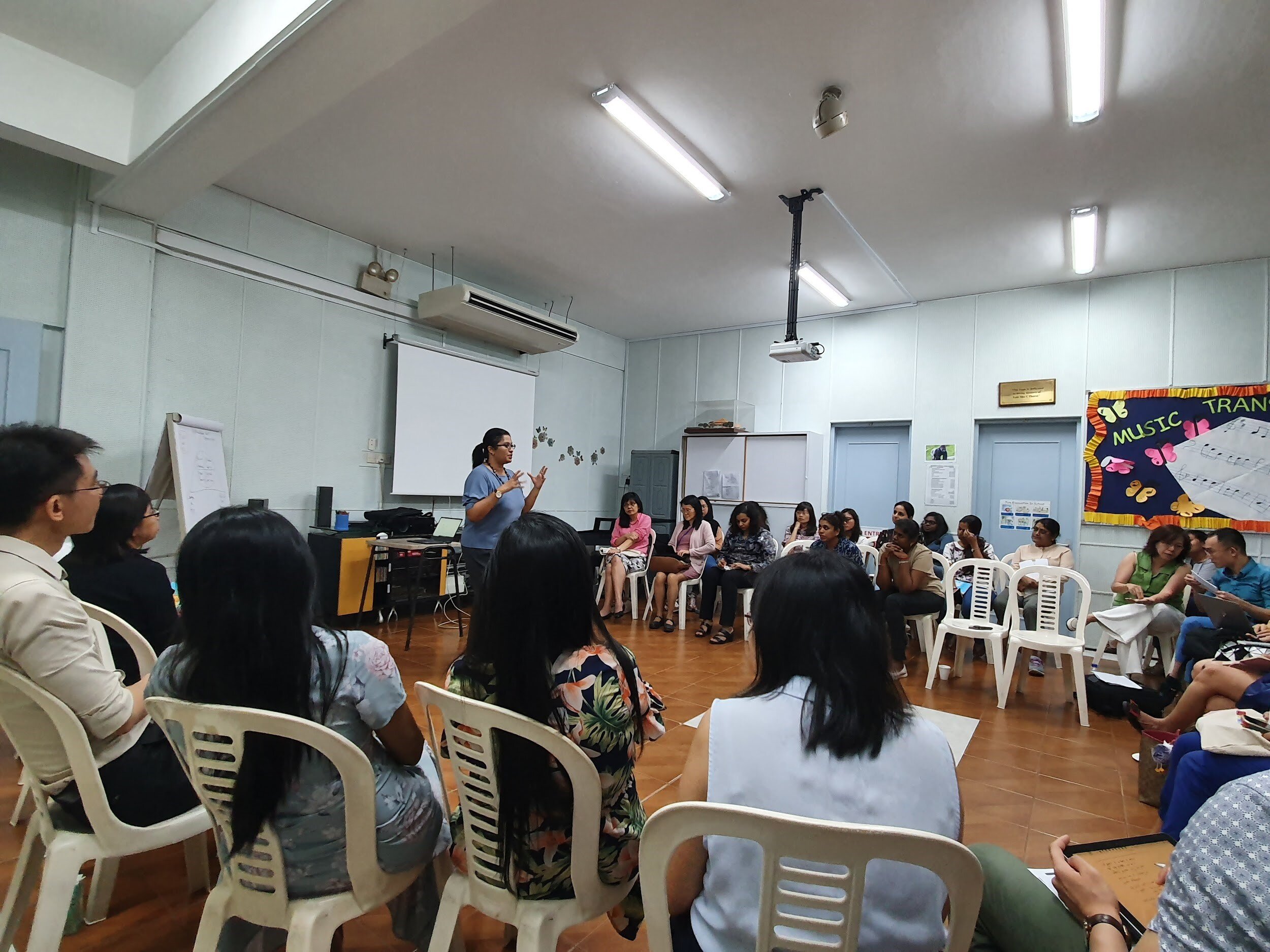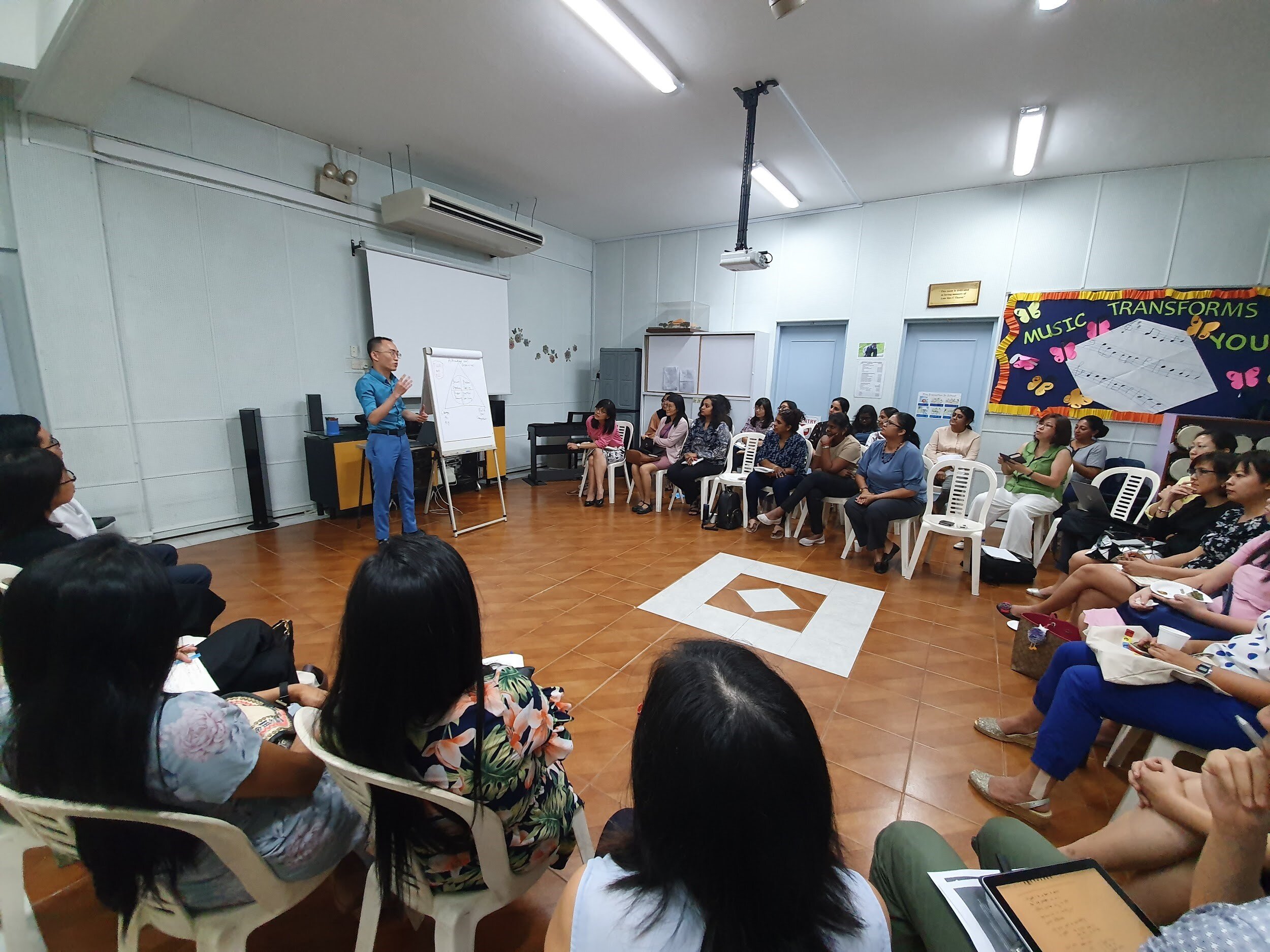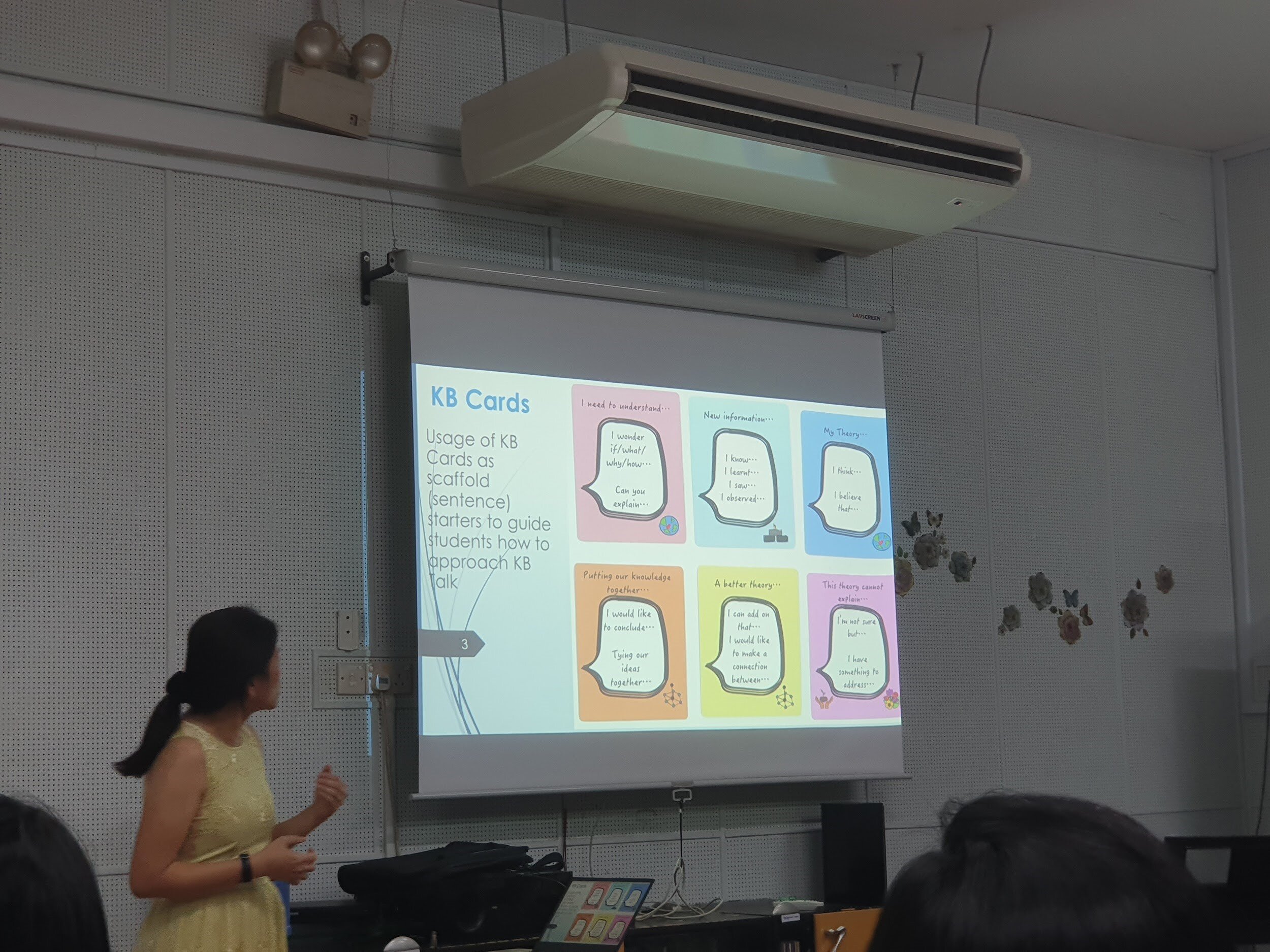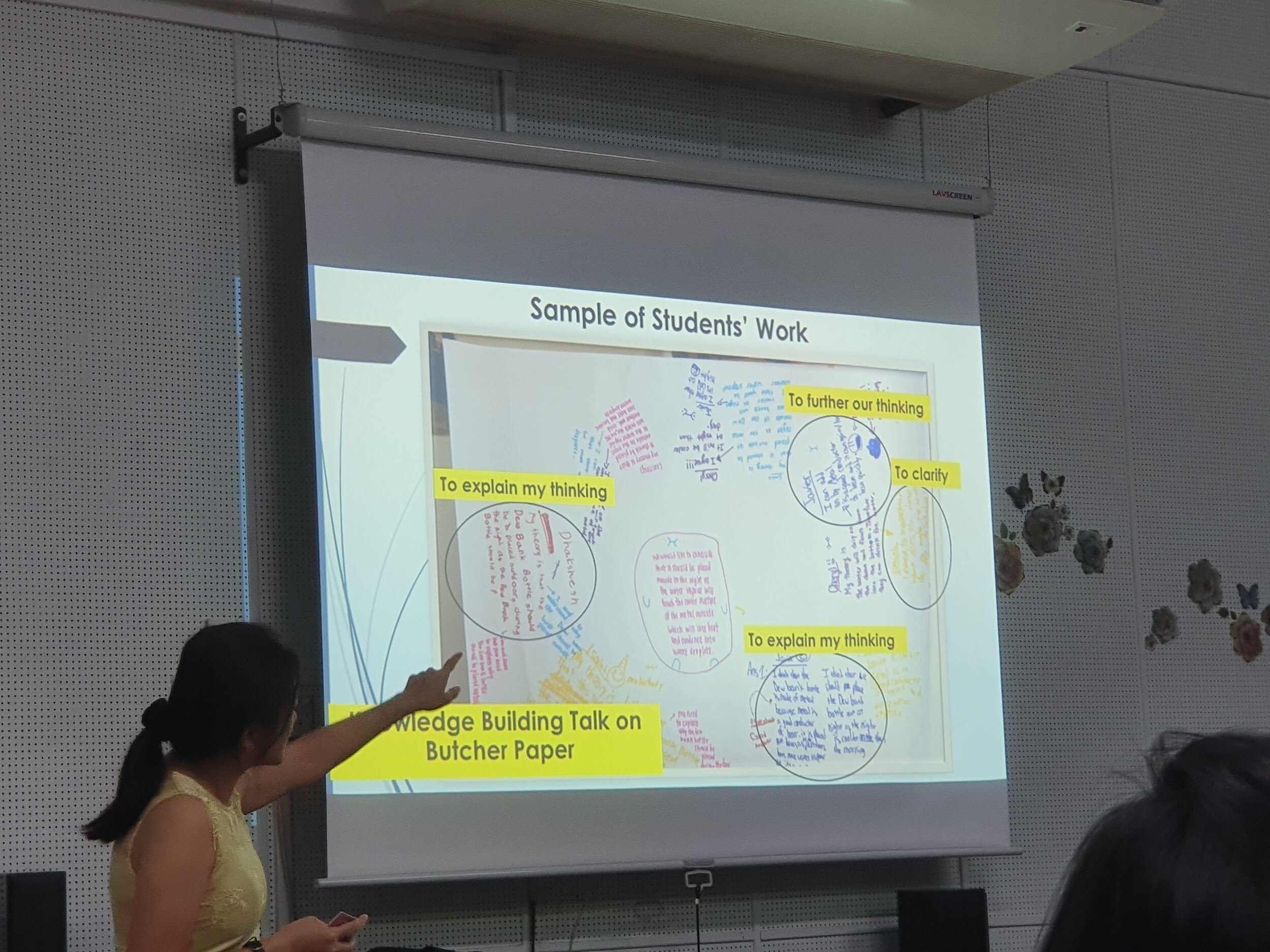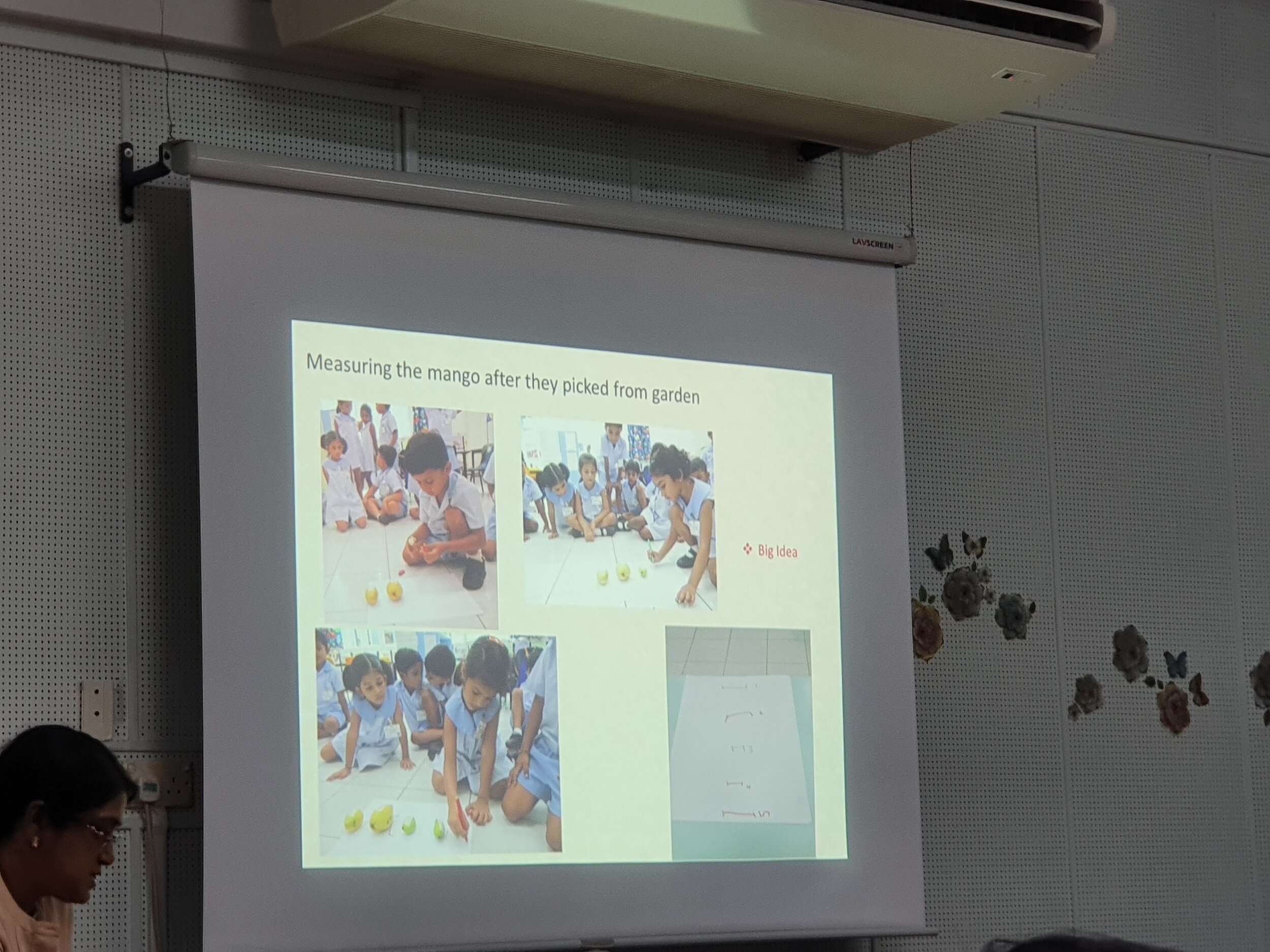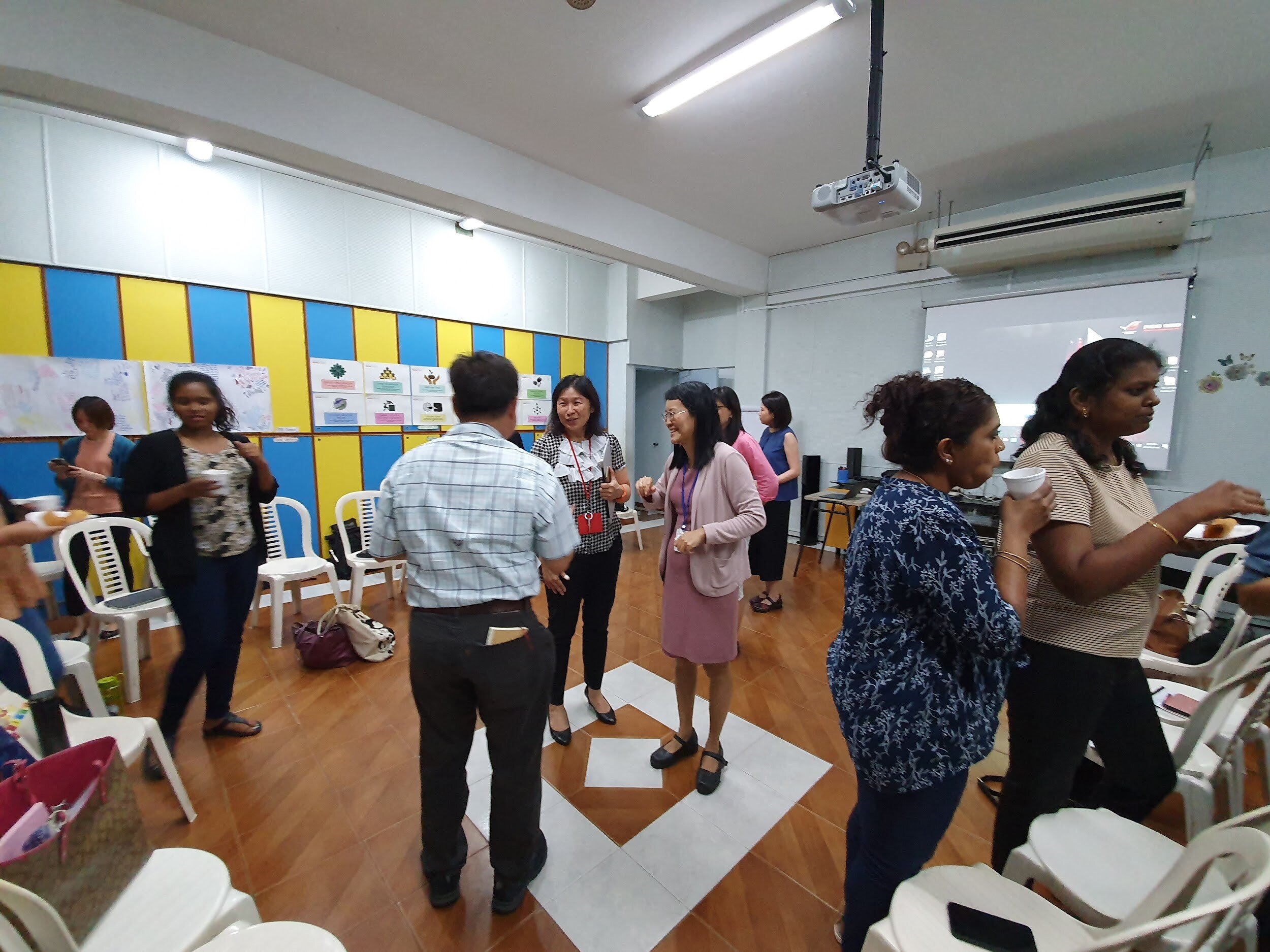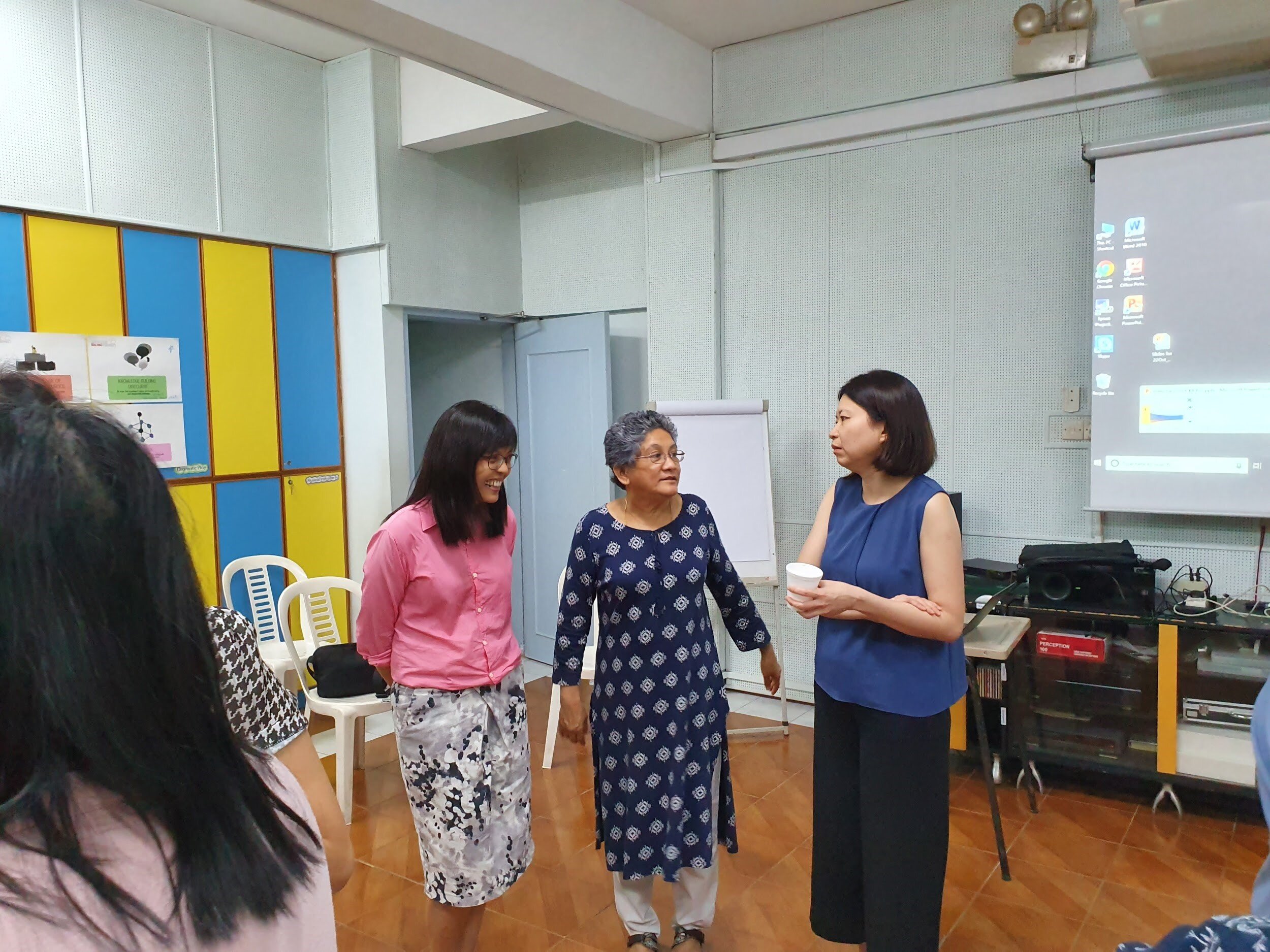Knowledge Building Community - Oct 2019
A Living Theory, A Growing Classroom
Teacher Sulo sharing her amazing knowledge building journey with five years old children.
A quarterly KB session, held on the 22nd October 2019, brought together 30 teachers from pre-schools, primary and secondary schools, and higher education institutions, with expertise spanning across a wide range of disciplines. The community shared their practices, advances and challenges, and discussed how knowledge building has impacted their students making the event a resounding success.
The aim of the session was to discuss the students’ progress in KB as well as to introduce Curriculum Analytics to support teachers in developing KB practices. This network learning community was also tied with the launch of the Edulab project ‘Light Up the Curriculum’, that aims to examine the use of Learning Analytics in providing visualisations of key ideas in students’ discourse in relation to the curriculum.
Knowledge advancement from the pre-school teachers
The session first commenced with sharings from two tre-school teachers, Shah and Sulo, from Ramakrishna Mission Sarada Kindergarten. Participants saw how these teachers brought different KB principles to life and created a classroom filled with student-led ideas and classroom interactions.
Teacher Shah’s exploration into living things had allowed students to develop further queries into the absorption of water in flowers without roots. Following these queries, students were able to gain a higher-level understanding of plant parts that go beyond the existing curriculum, such as xylem and roots, that further aided the understanding of transportation in plants.
Teacher Sulo’s further shared how students delved deeper into the understanding of food. The students firstly led a discussion on food wastage by interviewing relevant experts and conducting an investigation, to better understand food wastage in classrooms. Following this investigation, students successfully generated and shared solutions with other classes in the school on methods to reduce food wastage.
We move along the continuum and brought on the Secondary School KB Teachers to share their KB journey
The session continued with sharings from Andy and Jamay from Saint Hilda’s Primary School teacher. Participants saw how Jamay utilised the KB cards in the classroom to encourage deeper discussions among students on the topic of water cycles. Through this exploration, students learnt the concepts of water cycles and related applications, such that they could then explain why a dew tank bottle should be placed outside at night rather than during the day.
It is a continual improvement trajectories: The challenges and support for KB
The session provided participants with an opportunity to voice out some of their challenges when switching from traditional practices to KB practices. Vice-principal Uma of Ramakrishna Mission Sarada Kindergarten explained how KB is an immersive culture that pervades across different levels in her school. She also mentioned the importance of having support from the staff members and having to manage parents’ expectations, in ensuring that her teachers are able to meet the curriculum requirements and yet also helped students to develop 21st century competencies and skills for a deeper understanding.
Melvin, a History teacher from Teck Whye secondary school, lastly introduced to participants how he implemented the KB practices into the school curriculum using an ABC framework (Acknowledge our experiences, Build our competencies and Courage to try).


